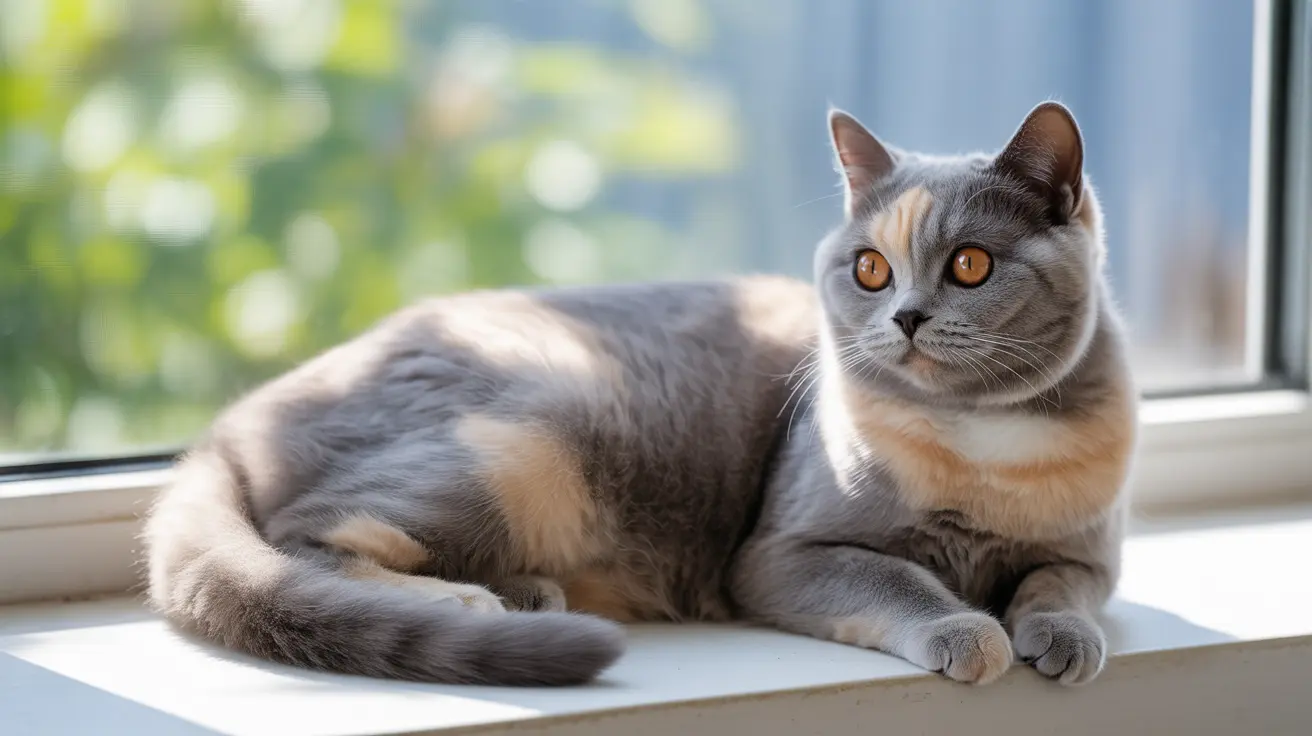If you've ever encountered a cat with soft, muted patches of gray and cream, you might have met a dilute tortie cat. These enchanting felines are special variations of the traditional tortoiseshell pattern, featuring pastel-like coloring that makes them stand out in the feline world.
In this comprehensive guide, we'll explore everything you need to know about dilute tortie cats, from their distinctive appearance to their genetics, personality traits, and care requirements.
What Makes a Dilute Tortie Cat Special?
A dilute tortie cat showcases a unique coat pattern resulting from specific genetic combinations. Unlike traditional tortoiseshell cats that display bold black and orange patches, dilute torties feature softer, more subdued colors - typically gray (often called "blue" in cat fancy terms) and cream or soft orange tones.
This beautiful coloring occurs when a cat inherits both the tortoiseshell pattern genes and special dilution genes that soften the intensity of their coat colors. The result is a stunning, watercolor-like appearance that many cat lovers find irresistible.
The Fascinating Genetics Behind Dilute Torties
The genetics of dilute tortie cats are particularly interesting. The tortoiseshell pattern itself is linked to the X chromosome, which explains why nearly all dilute torties are female. Male dilute torties are extremely rare, occurring in only about 1 in 3,000 cases, and they typically have genetic abnormalities that render them sterile.
The dilute coloring comes from a separate pair of recessive genes that affect how melanin (color pigment) is distributed in the cat's fur. When a cat inherits two copies of this dilute gene, it transforms:
- Black to gray/blue
- Orange to cream or soft orange
- Red to pink-tinged cream
Personality and "Tortitude"
Many cat owners and enthusiasts speak of "tortitude" - a reputation for sass and spunk that tortoiseshell cats, including dilute torties, seem to share. While every cat is an individual, dilute torties are often described as:
- Strong-willed and independent
- Highly intelligent and engaging
- Affectionate with their chosen humans
- Vocal about their needs and desires
While there's some anecdotal evidence supporting these personality traits, it's important to remember that each cat's temperament is shaped by various factors beyond coat color, including genetics, early socialization, and environmental influences.
Health and Care Requirements
The good news for dilute tortie owners is that these cats don't require any special care beyond what any domestic cat needs. Their dilute coloring is purely aesthetic and doesn't affect their health or lifespan. However, like all cats, they need:
- Regular veterinary check-ups
- High-quality nutrition
- Daily mental and physical stimulation
- Consistent grooming
- Lots of love and attention
Frequently Asked Questions
What causes the unique diluted colors in a dilute tortoiseshell cat's coat?
The diluted colors are caused by a pair of recessive genes that affect how melanin (pigment) is distributed in the fur. These genes essentially "water down" the traditional tortoiseshell colors, turning black into gray/blue and orange into cream.
Are dilute tortie cats more prone to any specific health issues compared to other cats?
No, dilute tortie cats are not prone to any specific health issues related to their coat color. Their dilute coloring is purely aesthetic and doesn't affect their overall health or longevity.
Why are most dilute tortoiseshell cats female, and how rare are male dilute torties?
Most dilute torties are female because the tortoiseshell pattern is linked to the X chromosome. Females have two X chromosomes, allowing them to express both colors. Male dilute torties are extremely rare (about 1 in 3,000) and usually have a genetic abnormality (XXY chromosomes) that makes them sterile.
How can I best care for and groom my dilute tortoiseshell cat's delicate coat?
Care for a dilute tortie's coat just as you would any other cat's coat. Regular brushing, a healthy diet, and routine flea prevention will help maintain their beautiful coloring. Their dilute coat doesn't require any special grooming techniques.
What personality traits or behaviors are common in dilute tortoiseshell cats?
While each cat is unique, dilute torties are often described as having "tortitude" - meaning they can be strong-willed, vocal, and very affectionate with their chosen humans. However, individual personality depends more on factors like socialization and environment than coat color.






